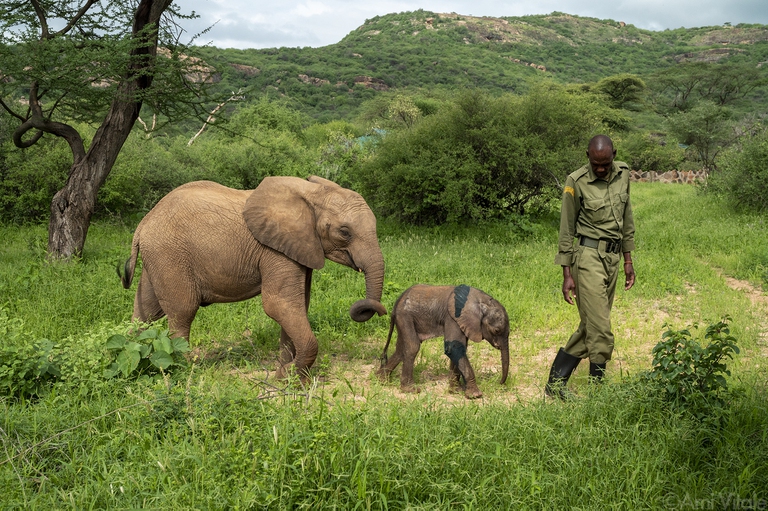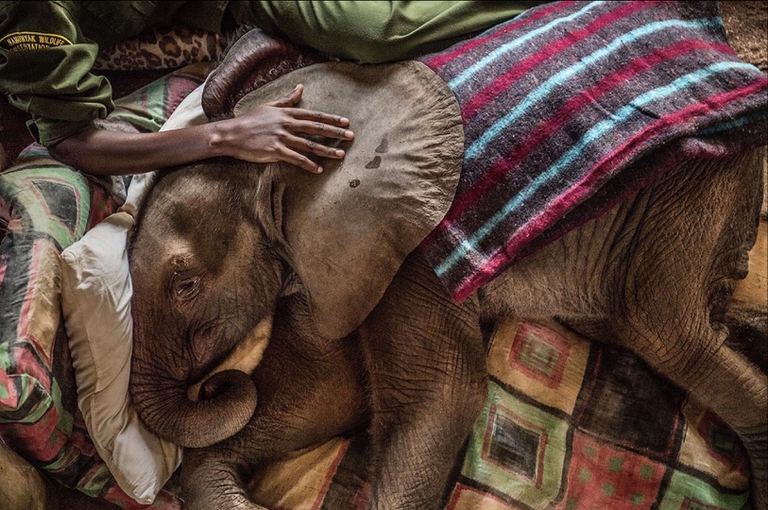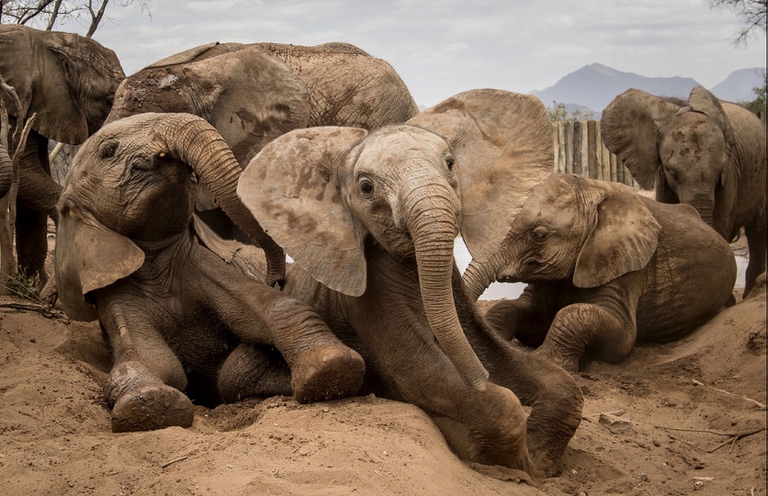
South African court dismisses a major lawsuit by 140,000 Zambian women and children against Anglo American for Kabwe lead poisoning. A setback for affected communities enduring the lasting impact of lead contamination.
On World Elephant Day, we tell the story of the Reteti elephant sanctuary in Kenya, the first community owned and run elephant sanctuary in all of Africa that also is hiring indigenous women to be elephant keepers.
In the mountains of northern Kenya, a Samburu community is doing something that has never been done before: they have built an elephant sanctuary for orphaned elephants. What’s so special is that its the first indigenous owned and run elephant sanctuary that rescues and raises the orphaned elephants with the ultimate goal of reintroducing them back into the wild.
But the sanctuary isn’t just about saving elephants; it’s about breaking down stereotypes and redefining wildlife management. When people realize that they can benefit from healthy elephant populations, they’re proud to take care of wildlife.
In addition to helping elephants, Reteti is also empowering Samburu women to be the first-ever women elephant keepers in all of Africa. At first, the community didn’t think there was a place for women in the workplace. Now, the success of these women elephant keepers is unlocking new possibilities and setting a powerful example for girls hoping to pursue their dreams. It’s also changing how the community relates to elephants. Schoolchildren who have never seen an elephant before or who were afraid of elephants visit Reteti and experience these elephants up close. They then realize they can grow up to be a veterinarian or an elephant keeper.
What’s happening here, without fanfare, is nothing less than the beginnings of a transformation in the way the Samburu people relate to wild animals. This oasis where orphans grow up, learning to be wild so that one day they can rejoin their herds, is as much about the people as it is about elephants.
Since September 2016, the team at Reteti has rescued over 35 elephants and returned ten back to the wild. This is the result of a widely recognized and expanding grassroots movement of community-driven conservation across northern Kenya; a movement that is growing new economies, transforming lives and conserving natural resources.
For World Elephant Day, we are making Shaba, an award winning short film about the sanctuary, available online and all ticket sales go directly to support the elephants and their incredible keepers. It will be available until the 31sth of August at shabafilm.org
The film is about an orphaned elephant named Shaba who arrived traumatized after poachers killed her mother in front of her. It took weeks for the team at Reteti to finally forge a connection with her and Shaba soon became the matriarch of the entire orphaned herd. She became instrumental at the sanctuary, caring for each new orphan that arrived and teaching the keepers how to be better caretakers. This is a story about learning to trust those that we fear. Shaba teaches us about love and our connections to all of life around us.
Siamo anche su WhatsApp. Segui il canale ufficiale LifeGate per restare aggiornata, aggiornato sulle ultime notizie e sulle nostre attività.
![]()
Quest'opera è distribuita con Licenza Creative Commons Attribuzione - Non commerciale - Non opere derivate 4.0 Internazionale.
South African court dismisses a major lawsuit by 140,000 Zambian women and children against Anglo American for Kabwe lead poisoning. A setback for affected communities enduring the lasting impact of lead contamination.
Controversial African land deals by Blue Carbon face skepticism regarding their environmental impact and doubts about the company’s track record, raising concerns about potential divergence from authentic environmental initiatives.
Majuli, the world’s largest river island in Assam State of India is quickly disappearing into the Brahmaputra river due to soil erosion.
Food imported into the EU aren’t subject to the same production standards as European food. The introduction of mirror clauses would ensure reciprocity while also encouraging the agroecological transition.
Sikkim is a hilly State in north-east India. Surrounded by villages that attracts outsiders thanks to its soothing calmness and natural beauty.
Sikkim, one of the smallest states in India has made it mandatory for new mothers to plant saplings and protect them like their children to save environment
Chilekwa Mumba is a Zambian is an environmental activist and community organizer. He is known for having organized a successful lawsuit against UK-based mining companies.
What led to the Fukushima water release, and what are the impacts of one of the most controversial decisions of the post-nuclear disaster clean-up effort?
Nzambi Matee is a Kenyan engineer who produces sustainable low-cost construction materials made of recycled plastic waste with the aim of addressing plastic pollution and affordable housing.










